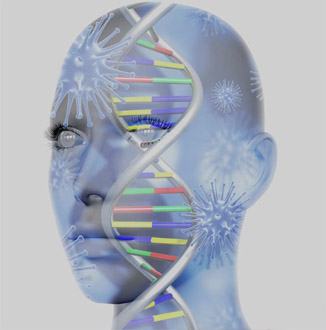
August 31, 2015
Imagine complete remission from a lifelong genetic disease. It happened with a case of WHIM syndrome and is the focus of this week’s SciMon. WHIM is an acronym for warts, hypogammaglobulinemia, infections, and myekolathexis. The syndrome is a genetic disease, and no spontaneous remission or cure of it had been recorded previously.
WHIM is a rare congenital immunodeficiency disorder caused by an overactive chemokine receptor, CXCR4. The receptor controls the production and distribution of white blood cells in bone marrow and blood. Patients exhibit increased susceptibility to bacterial and viral infections, especially from common serotype human papilloma virus, resulting in warts on the hands and feet starting in childhood.
In this case, the patient presented at age 58 requesting evaluation for herself and two of her three daughters who showed the characteristics of WHIM syndrome. The patient, though, had no remaining symptoms, consistent with spontaneous and durable complete clinical remission.
Without whole genome sequencing (WGS) this case would have remained a medical mystery. In this case, WGS even yielded information for potential therapies.
Watch the video below.


